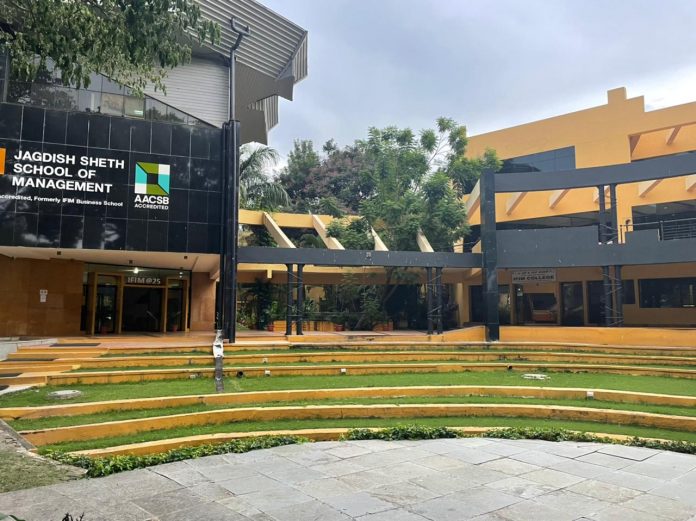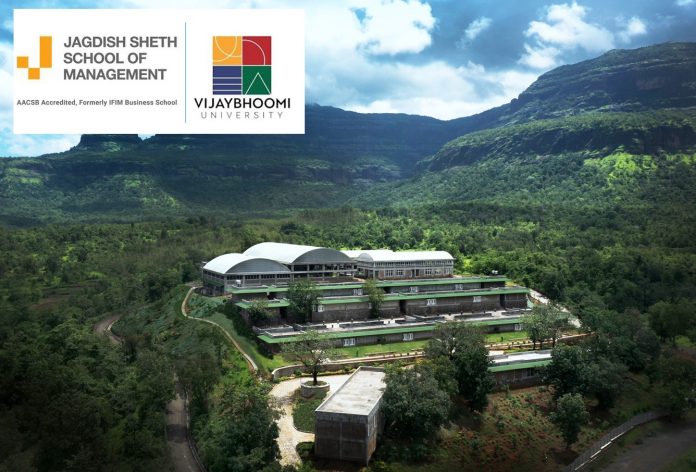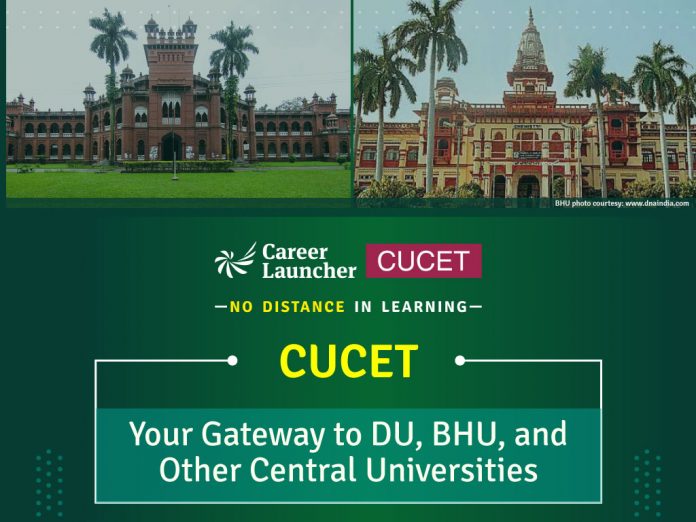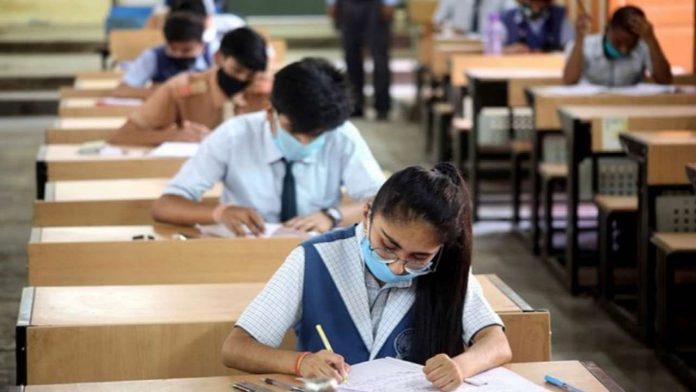The D Y Patil deemed to be University is a testimony to the power of private enterprise for public good. In this case, it is the educational sector that has benefited exponentially, due to the dream of one man who wished to bring world class education at the doorstep of every young aspiring Indian. Thousands of students availed the opportunities provided by this illustrious yet rooted university, much like the personality of its founder, Padmashree Dr D Y Patil, former Governor of Tripura and Bihar, statesman, leader and visionary. Knowledge is Supreme is the philosophy that has driven the mission of the founder chancellor of this prestigious university.
The vision and legacy of Dr D Y Patil is not only sustained but also extended under the inspiring leadership of Dr Vijay D Patil, the current Chancellor of the University and sturdily supported by the efforts of Mrs Shivani V Patil, managing trustee D Y Patil Group.
The DY Patil Group has established top notch institutions in every stream, be it Engineering, Medical, Dentistry, Physiotherapy, Ayurveda, Pharmacy or Hotel Management, Law and Architecture to name a few. The University is awarded with an ‘A’ grade by NAAC (National Accreditation & Assessment Council) & it is ranked 77th in the top 100 universities by NIRF (National Institutional Ranking Framework).
The group furthered the boundaries of learning by actively pushing for sports and its management in the educational agenda. This is a rare and unique offering of the D Y Patil University in a country obsessed with only conventional academic education.
The latest feather in their illustrious cap is the Vijay Patil School of Management or VPSM, Navi Mumbai. The Vijay Patil School of Management is the result of a dedicated strategic planning & vision to bring transformative education in the field of management as envisaged by Dr Vijay D Patil who himself has a degree in Management from Bond University, Australia.
Nestled in a verdant green eco-friendly campus, within a futuristic, State -of- the -art structure in Navi Mumbai, designed by globally acclaimed British Architects Foster + Partners, VPSM has Harvard style technology driven classrooms with everything available at the click of a button, Learning Resource Centre, Discussions rooms, Conference rooms, Faculty rooms, and a centralised HVAC campus with multi cuisine cafeterias. Our classrooms, study areas & other facilities are constructed with an emphasis on technology, collaboration &sustainability. The first four storeys house the academic activities of the school & the five upper levels provide residential accommodation for students & faculty members. There is a wide selection of recreational facilities on campus where you can practise, play & participate when it works best for you. Intramural sports give you the opportunity to play with a team in a fun & relaxed environment.
However, apart from providing a comfortable ambience, the VPSM philosophy is also about creating rounded leaders, visionaries, strategic thinkers, policy makers of tomorrow, and human beings capable of making substantial contributions to the growth and development of communities and for the nation. VPSM aims to spread impactful education to a broad spectrum of individuals, be they students, working executives, or those connected to the corporate world.
In the words of the Chancellor Dr Vijay D Patil, VPSM is ‘a step towards encouraging global, evolved learning’. This thought metamorphosed into action with a collaboration with the prestigious Harvard Business School Online Program that gives a unique opportunity to students of VPSM to learn online from the faculty at Harvard. In addition to this, courses at VPSM are designed to evoke the spirit of lifelong learning among students. As the Dean of VPSM, Prafulla Agnihotri, Former Professor, IIM Calcutta & Founding Director, IIM Tiruchirappalli, an eminent academician says, “We aim at inculcating the ‘spirit of inquiry, independent thinking, and data-based decision-making.”
This spirit of learning is facilitated by the highly interactive pedagogy and the practical approach to learning that is adopted by the exceptionally experienced and qualified faculty, with PhDs from across International Universities and several ground breaking research papers and publications.
The faculty applies a participant-centric pedagogy. Latest pedagogical tools and Curriculum, involving Case-studies, inquiry methods Simulation games, group projects, internships are also part of the teaching methodology and innovative ideas are combined with these methods to create effective learning experiences that leave lifelong learning impressions. Faculties ensure fostering the close mentorship & relationship that we believe makes studying at VPSM special.
The programs offered at VPSM are all duly recognised by the statutory regulatory bodies like the AICTE (All India Council Technical Education) and UGC (University Grants Commission)
Furthermore, the curriculum is designed to meet the aspirations of future generations wishing to inculcate the skills and values that will catapult them on to global platforms. VPSM offers a full time MBA program, (Masters in Business Administration) BBA, (Bachelors in Business Administration) and BSc (Hons) in Economics. All these programs with their multi-disciplinary elective courses aim to bring about all round holistic development of the students to make them worthy leaders and visionaries and entrepreneurs on the national and world stage in the future. At VPSM, all the courses, are crafted to create a fertile ground to foster critical thinking and analytical abilities among the students that will evolve and sustain long after they have graduated out of the School.
The VPSM MBA program is of two years consisting of six trimesters. The BBA program is for three years with six semesters and they give greater insights into the concepts and ideas that are taught in the foundational courses {BBA} and advanced courses {MBA}
Other than compulsory core courses, there are electives that are customised to suit the learning aspirations of the students. The electives will be in the disciplines of management such as Marketing, Finance, Operations, and Supply-chain Management, HR, MIS and Analytics, Strategy, Entrepreneurship, etc. across the program. This also promotes interdisciplinary learning across different verticals like Marketing, Finance, MIS, Analytics, Operations, HR, etc.
Our students begin their careers with foundation courses, an experience designed to create a foundation of management thinking by introducing the students to all the fields of management science and enable them with tools and techniques of decision-making which they can apply to their choice of elective courses in the second year. The program emphasises the value of communicating, learning & thinking across disciplines. Students are coached by faculties to hone skills that will be integral throughout their graduate training & beyond. Substantial face to face discussions with faculties, opening multiple mentorship possibilities & the collaboration between students of different backgrounds is the key strength of VPSM.
Meeting industry leaders and familiarizing the students with best practices in the industry and updating them with latest technical trends are all part of the VPSM philosophy of creating truly transformative education.
The B. Sc. (Hons) Economics program offered by VPSM aims to put emphasis on applications and policy formation. The curriculum offers robust training in economic theory and statistical methods and a wide choice of Economics courses to suit students’ interests and mathematical aptitude. Economics electives covers all recent developments in the field of economic theory. Students can also opt for electives from the management stream.
VPSM goes an extra mile, in providing scholarships and financial aid to deserving students. VPSM offers extensive assistance in securing good placements through its strong network with the industry. It also offers professional career counselling and guidance to its students and aims at helping students to choose the right career based on their aptitude and other psychological traits.
A strong connect with the industry, a robust curriculum, a state-of-the-art infrastructure, eminent, and committed faculty, an interactive approach to pedagogy and most importantly, nearly four decades of experience in founding and sustaining viable, robust educational institutions are few of the reasons that make VPSM a frontrunner among the top-ranking institutions of Management in the country in the near future.
VPSM students are ambitious, impact focussed individuals who share a sense of compassion & a willingness to be of service to others, give back & pay it forward. Applicants best suited for our culture are team-oriented individuals who both value and thrive in highly collaborative communities & also understand & appreciate the advantage of studying in a city like Mumbai. Our location gives students very intentional opportunities to focus their time and attention on their own personal growth as well as the relationship they develop with their peers, faculties & program administrators. Students enter into the program seeking transformative growth, and the kind of growth that our students talk about is being distinguished to their VPSM experience & time in Mumbai.
If young ambitious, hardworking persons with a dream and drive to succeed are looking to gain a head start in management education, then certainly their search should end with VPSM. Their journey of experiencing transformative education begins here!


























































